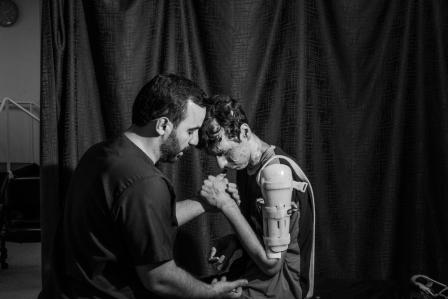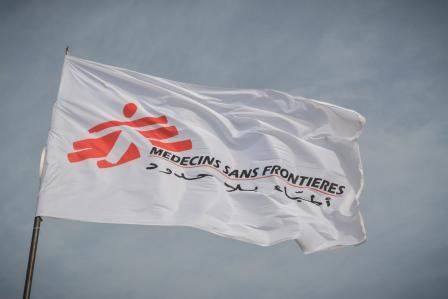North Gaza: “The destruction is catastrophic. It’s a sight that cannot be described.”
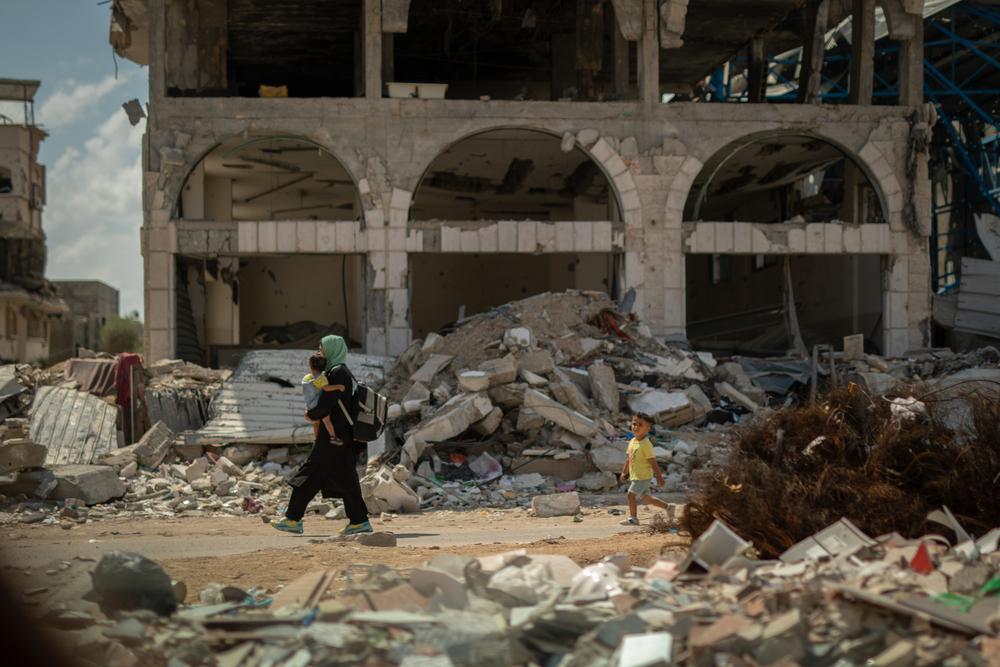
In the Shujaeyya neighborhood on Baghdad Street in Gaza City, a woman is carrying her child back home through the rubble. Palestinian Territories, September 2024. © MSF
While the ceasefire in Gaza has finally been announced, in the past months people across the Strip have continued to suffer from Israeli forces' relentless bombardments. The northern governorate of Gaza in particular has been under siege and subject to horrific bombing and attacks. Meanwhile, almost no humanitarian aid has managed to enter the north and people have been cut off from healthcare as hospitals have also been under siege and subject to incursions. In our clinic in Gaza City, patients who managed to escape the horror recount their experience during the siege.
Mustafa Hassan Abu Hamada and his family were living in Jabalia camp in northern Gaza during the recent brutal Israeli military siege, which has left the city completely destroyed and killed and injured countless civilians, including Doctors Without Borders/Médecins Sans Frontières (MSF) staff.
“People in front of us tried to escape at the Al-Awda junction, but they were shot at. We were forced to return. We said, ‘Let us die in our homes.’ I would rather die in my house than be displaced,” says Mustafa.
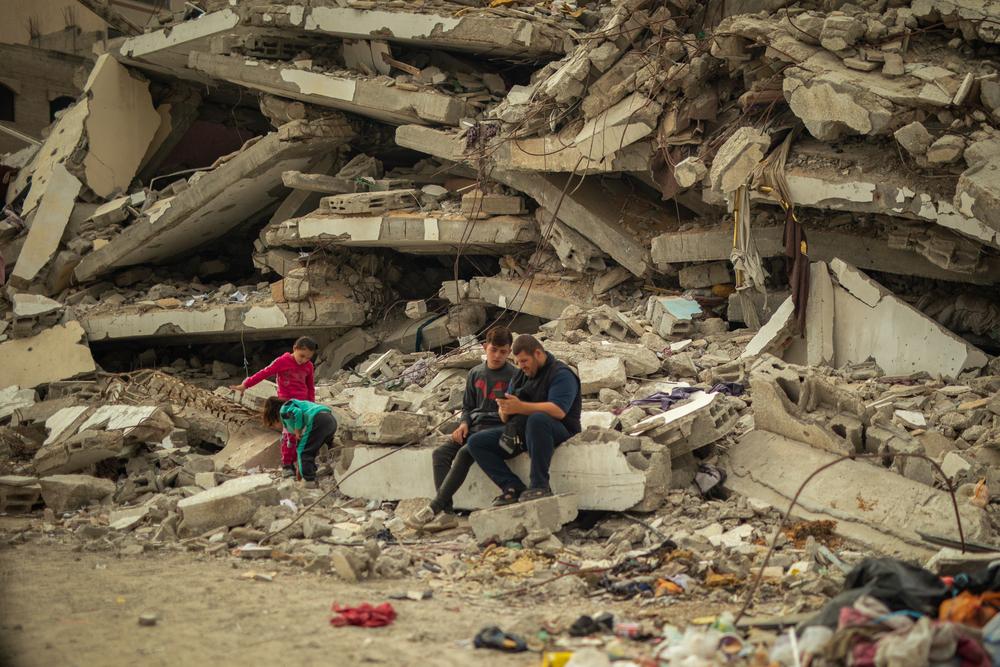
At Al Saraya in Gaza City, people are sitting on the rubble of their destroyed home, with their tent set up across from the debris. Palestinian Territories, November 2024. © MSF
In north Gaza, the Israeli military has been carrying out a ground offensive since 6 October 2024. This ongoing military offensive is a clear illustration of the brutal war the Israeli forces are waging on Gaza, and we are witnessing Palestinian life being wiped from the area.
“When the Israeli forces arrived, we stayed for an hour or two before shells started raining down on us from all directions,” says Sabah Al-Sharawi who was sheltering in her home in Beit Hanoun, northern Gaza, when it was targeted by an airstrike.
“The first shell came through the living room. It hit my legs - both of my legs,” she says. “They took us to Kamal Adwan hospital”.
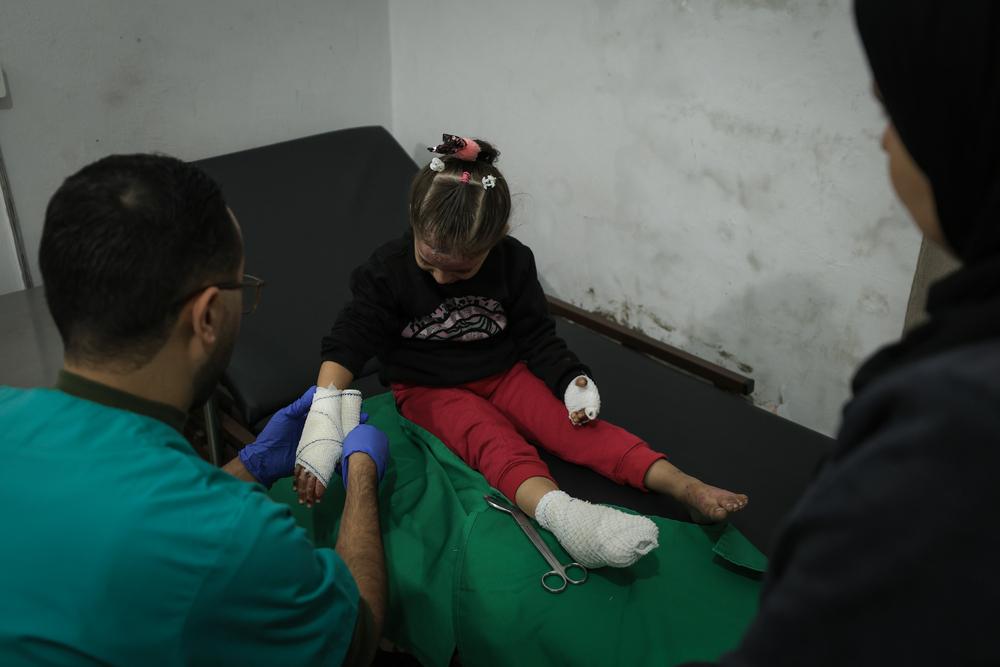
Doctors Without Borders Nurse is tending to a child patient's dressings at the clinic in Gaza City. After their house in Beit Hanoun was targeted, the little girl sustained burn injuries. Palestinian Territories, December 2024. © MSF
“On the way, we saw bodies lying everywhere. Dogs were gnawing at them. Drones were hovering above us, and a helicopter circled overhead.”
Sabah was evacuated from Kamal Adwan to Gaza City where she is now displaced and receiving treatment for her wounds at the Doctors Without Borders Gaza Clinic.
“I buried my daughter and left. I didn’t even see her one last time. I didn’t see my daughter. I didn’t see my loved ones. I left without seeing anyone,” says Sabah.
In addition to the relentless destruction, the offensive has left thousands of people without access to food, water, or healthcare in northern Gaza. The effects of these conditions are devastating, especially on elderly people, children and people with special needs, including those with disabilities.
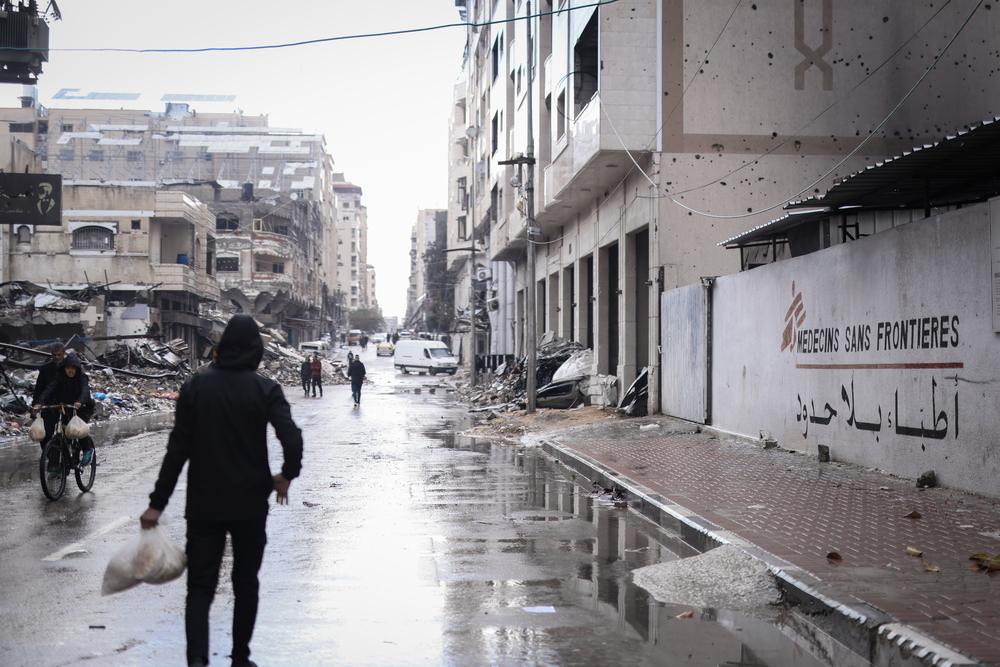
On a rainy day in Gaza City, the surroundings of the Doctors Without Borders Clinic. Palestinian Territories, December 2024. © MSF
Hospitals have been subject to sieges and violent incursions one by one over weeks and many medical staff have been detained, including one Doctors Without Borders staff member. Gradually the number of hospitals for people has reduced and since 9 January there has not been a single functional hospital in north Gaza left for people in need of medical care.
In addition, since 21 November 2024, no Doctors Without Borders supply trucks have been allowed by Israeli authorities to enter the north. This has meant that people with medical conditions, including war wounds, have had almost no access to medical care.
As the situation in northern Gaza has become untenable, many people have risked their lives fleeing to Gaza City. In our clinic, we have seen an upshot of patients in need of medical care. Before October 2024, our teams had been providing around 600 consultations per week, however since the violent incursions began, we have been providing more than 1,400 consultations per week up until December 2024, with an increased proportion of burn injuries.
Honestly, this situation is unprecedented. I am 40 years old and throughout my life I have never seen such a level of aggression or conflict. It is a war that has annihilated many aspects of life. Drinking water is not available. Food, unfortunately, is not sufficiently available. This is extremely heartbreaking.Mohammed Wadi, Deputy Medical Coord.
Will you support our emergency response work?
Help us provide lifesaving medical care during emergencies by making a donation today.






